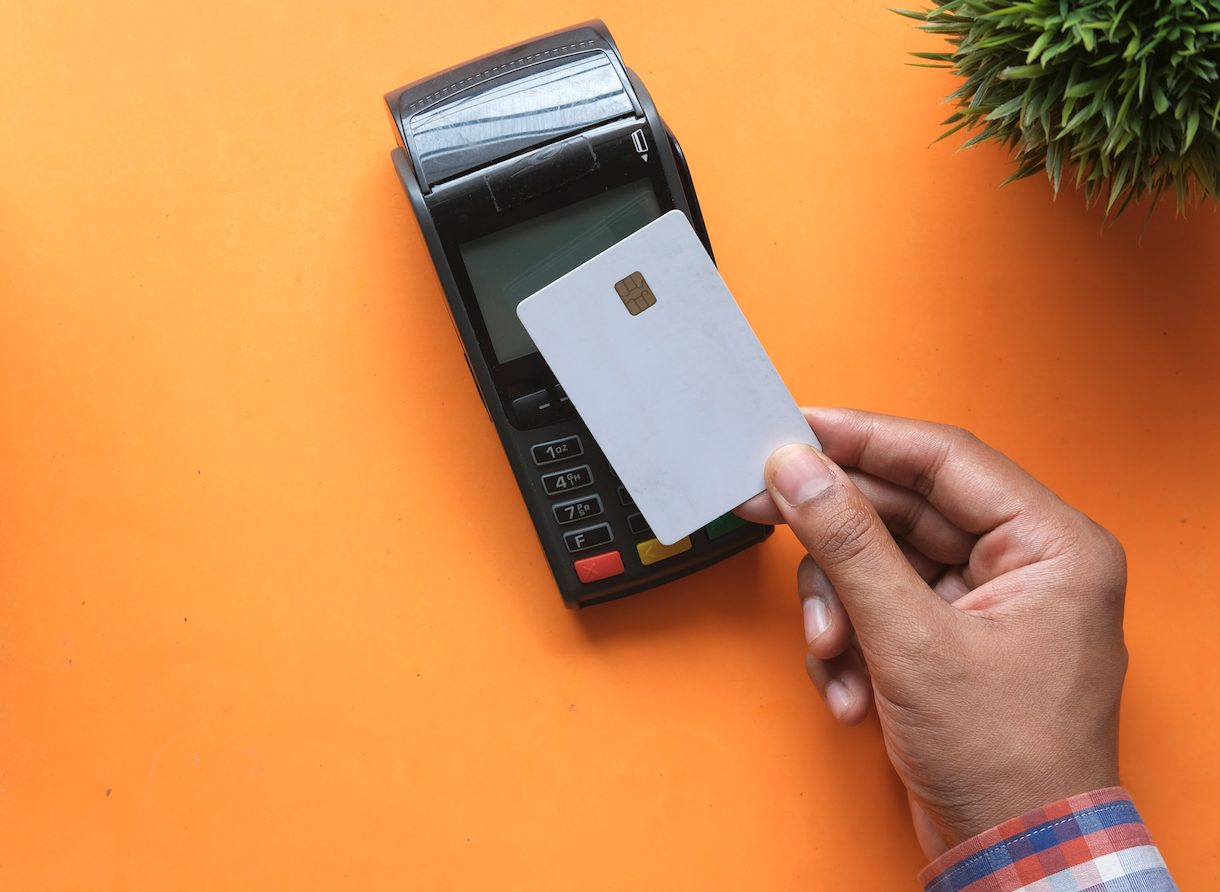Complex vs. Single-Unit Renting in 2025

Apartment or single-unit rental? Renters face different trade-offs in 2025. Apartments often mean lower costs and perks like gyms or pools, while single-family homes offer privacy and space, at a premium.
How to Find Trusted Service Pros

Hiring someone to clean, fix, paint, or haul things shouldn’t feel like a gamble. This guide shows you the exact steps, backed by consumer protection experts to find reliable help, spot red flags, and protect yourself with contracts and fair deposits.
Non-Traditional Ways To Become A Homeowner

Buying a home no longer requires following the traditional path. Innovative strategies such as co-buying with family or friends, exploring rent-to-own agreements, or leveraging first-time buyer programs are helping more people achieve homeownership despite today’s market conditions.
Improving Your Financial Position While Owning

Your home isn’t just a place to live it’s a key part of your financial future. With the right planning, budgeting, and smart upgrades, homeownership can help you build long-term stability and wealth. Learn how to turn your home into a financial asset, not just an expense.
Mortgage Terms and FAQs

Buying a home is one of the biggest financial steps you’ll ever take- and it come with a lot of new terms, paperwork, and information sharing. This guide simplifies the process so you know what everything means, why lenders ask for your data, and how to keep your information safe along the way.
Pacific Rent Growth: What Renters Need to Know

Rents across the West Coast are climbing again, led by sharp increases in cities like San Diego, Seattle, and Honolulu. Learn how to budget wisely and time your lease to stay ahead of rising costs.
Renting With Pets: What To Know and How To Prepare

Finding a rental that welcomes your four-legged family member takes extra planning and communication. Learn how to navigate pet policies, fees, and applications to make renting with pets stress-free and successful.
Property Taxes: What To Expect, Appeal, & Plan For

Property taxes can be one of the biggest ongoing expenses for homeowners but they don’t have to be confusing. Learn how property taxes are calculated, what to do if your assessment seems too high, and how to plan ahead so rising bills never catch you off guard.
Cost-Effective Upgrades That Boost Curb Appeal

Improving your home’s curb appeal doesn’t have to cost a fortune. With a few budget-friendly upgrades like a fresh coat of paint, new lighting, or simple landscaping, you can make your home look more welcoming and well cared for without breaking the bank.
Is Your Home Equity Working For You?

Your home isn’t just a place to live it’s a powerful financial asset. As property values rise, your home equity can open doors to major opportunities like renovations, debt consolidation, or investment. Learn how to use it wisely, avoid risks, and make your equity work for your long-term goals.
Make Your Home Smarter

Smart home upgrades are simple and affordable. From energy-saving thermostats to security-boosting locks, small tech investments add convenience and deliver big savings.
Proactive Ways To Save For Home Emergencies

Home repairs don’t have to catch you off guard. Learn how to build a repair fund, automate savings, and find programs that help homeowners cover unexpected costs with less stress.
Is Your LA Rental Rent Controlled?

Think your LA rental is covered by rent control? You might be surprised. Here’s how to check your unit and what protections it could give you.
Home Maintenance Checklist

A little maintenance goes a long way. Whether you own or rent, this simple checklist helps you stay ahead of costly repairs, protect your home’s value, and save money year-round.
Time To Review Your Homeowners Insurance?

With rising rebuild costs and insurers pulling back from key markets, now’s the time to review your policy. Learn how to check your limits, understand deductibles, and close coverage gaps before it’s too late.
What Is Credit And Why It Matters

Your credit score opens or closes doors from renting to loans. Learn what shapes it and how small changes save money and reduce stress.
Rent to Own: How Does It Work?
.png)
Dreaming of buying the home you’re already renting? Rent-to-own could make it possible. Here’s how this flexible option helps you build credit, save for a down payment, and plan your purchase.
What Is Down Payment Assistance?

Down payment holding you back from owning a home? Discover how assistance programs can help you get the keys sooner and start building wealth for your future.
How Much Home Can I Afford?

A house will likely be the biggest purchase of your life, so it’s important to have a clear and realistic idea of how much you can comfortably afford.
What Is My Debt-to-Income Ratio And Why Does It Matter?
.png)
Understanding your DTI (debt-to-income ratio) is key to getting approved for a mortgage, since lenders rely on it to gauge how much debt you can handle. Learn how it’s calculated, why it matters, and what numbers you need to hit to boost your chances of home loan approval.
How To Build And Improve Your Credit Score

Boost your financial power by mastering simple credit habits that lead to better loans, lower interest rates, and more opportunities. Start smart, stay consistent, and watch your score climb!
How to Prepare for the Costs of Buying a Home

Buying a home takes more than just the list price there are hidden costs waiting at every step, and smart buyers plan ahead. Get the full picture of what to expect so you can budget wisely and move into your dream home with confidence!
How To Get A Home Loan Pre-approval
.webp)
Stand out in a competitive market by getting pre-approved, it proves you’re a serious buyer and shows exactly how much home you can afford. With the right documents and lender, you’ll be offer-ready and one step closer to getting the keys to your dream home!
How To Find The Right Neighborhood When Buying A Home
.avif)
The right neighborhood can make your dream home even better think safety, schools, vibes, and convenience all working in your favor. Explore beyond the front door and find a community that matches your lifestyle and feels like home!
The Types Of Home Loan Officers, Explained
.webp)
When it comes to financing your dream home, not all lenders play the same role some offer convenience, others offer flexibility, and a few can unlock options you didn’t even know existed! Discover which mortgage pro fits your journey best and make your homebuying experience smoother (and smarter!) from day one.
Mortgage Rates: What Are They And What Do They Mean?
.webp)
Mortgage rates can make or break your budget just a few percentage points can cost (or save!) you hundreds every month. Get financially ready, boost your credit, and lock in the best rate so your dream home doesn’t come with nightmare payments!
Maintaining Your Home: Where To Start
.avif)
A well-maintained home saves you money, protects your investment, and keeps everything running smoothly not just today, but for years to come. From safety checks to lawn care and appliance upkeep, a little routine TLC now keeps big headaches (and repair bills!) away later!
Comparing Home Purchase Loan Types

Home loans aren’t one-size-fits-all whether you’re budget-savvy, credit-building, military, or fixing up a gem, there’s a mortgage made for you. Explore your options, match the loan to your lifestyle, and step confidently into homeownership!
How To Find The Right Real Estate Agent
.webp)
The right real estate agent does more than unlock doors they guide you, protect you from costly mistakes, and tap into a powerful network to give you an edge. With the right partner by your side, the home-buying process becomes smoother, smarter, and way less stressful!
What Is A HELOC And How Does It Work?
.webp)
Unlocking the value of your home can open big opportunities! A HELOC gives you flexible access to cash often at lower rates so you can tackle renovations, major expenses, or build financial safety with confidence.
Understanding Mortgage Interest Deductions
.webp)
Turn your mortgage into a money-saving tool! The mortgage interest deduction can shrink your taxable income and potentially save you thousands at tax time if you know how to use it wisely.
How to Get Rid of Private Mortgage Insurance (PMI)

Say goodbye to that sneaky PMI draining your budget and unlock instant savings with a few smart moves. From boosting equity to refinancing, this guide shows you how to kick PMI to the curb and keep more cash in your pocket!
Closing day: What To Expect And How To Prepare
.webp)
Closing day is the finish line of your homebuying journey and the moment you officially become a homeowner! From signing stacks of paperwork to paying final fees, here’s how to show up prepared and stress-free.
Buying Your First Home: What Is Escrow?
.webp)
Escrow plays two very different (but very important!) roles in the homebuying journey one protects your earnest money before closing, the other helps you stay on top of taxes and insurance after you move in. Understanding both types can help you avoid surprises, protect your investment, and keep your monthly payments running smoothly.
How To Know When To Refinance Your Home Loan
.avif)
Refinancing at the right time can unlock big savings, faster payoff, or even extra cash from your home’s equity. When the rates drop and your finances line up, it might just be your moment to hit the “refresh” button on your mortgage!
What Are Home Improvement Rebates?
.webp)
Big savings are coming for energy-smart homeowners! Thanks to new federal rebates, you could get thousands of dollars back for making your home more efficient, upgrading appliances, or switching to clean energy while also cutting long-term utility costs.
Navigating The Home Inspection Process
.webp)
Before you sign on the dotted line, a home inspection can be your secret weapon for spotting hidden issues and saving big on repairs. Learn how this simple step helps you protect your investment and buy with confidence!
Home Purchase Agreements: Why So Many Disclosures?
.webp)
A fresh coat of paint can hide a lot, but disclosures reveal the real story. From hidden damage to neighborhood nuisances, understanding a home’s disclosure package keeps you protected and prevents costly surprises before you sign on the dotted line.
Home Purchase Agreements: What Are Contingencies?
_205141a9-37a3-428f-801d-481a0bd6cbd7%20(1).webp)
Contingencies act as safety nets in your home purchase contract, giving you a way out if important conditions—like inspection, appraisal, or financing—aren’t met. Before you waive them to appear more competitive, remember: the right contingencies can protect your money, your peace of mind, and your ability to walk away from a bad deal.
A Renter's Guide To Saving Money To Buy A Home
.webp)
Saving for a home while renting isn’t easy, but it is possible with the right strategy and a little creativity. From cutting non-essentials and lowering bills to paying down debt and even getting a roommate, small sacrifices today can turn into a down payment tomorrow. Think temporary trade-offs, long-term gain, and a future where you own the keys!
What To Do If You Are Evicted

Eviction can feel overwhelming—but you don’t have to face it alone. With the right steps, you can protect your rights, explore financial and legal help, and create a plan to stay housed or relocate with confidence.
Steps To Take Before Transitioning From Renter To Homeowner

Becoming a homeowner is exciting, but preparation is key make sure your credit is strong, your down payment and budget are planned, and you understand all the costs of owning a home. Once you know how much you can afford, you’re ready to start touring homes and making confident offers
Renting vs. Buying: When Should You Make The Switch?
.webp)
Feeling ready to stop renting often starts with wanting more space, freedom to personalize your home, or the desire to build long-term wealth but your finances need to back up those goals. If your credit is solid, debt is manageable, savings are strong, and your job is stable, you may be financially ready to transition from renter to homeowner.
How To Negotiate A Residential Lease
.avif)
Secure the lease you want without paying more than you should! With the right prep, a little confidence, and smart negotiation tactics, you can unlock perks, lower costs, and land a rental that fits your lifestyle all while keeping the landlord on your side.
What You Should Know About Security Deposits
.avif)
Protect your money from unfair deductions! Understanding how security deposits work from inspections to refund timelines gives you the power to avoid disputes and get your cash back. With the right documentation and awareness of your rights, you can move out with confidence and your full deposit in hand.
Do I Need Renters Insurance?

Think renters insurance is just about stolen stuff? It can also cover living expenses, liability, and even guest injuries. Here’s what it really protects and when it’s worth it.
How Much Should I Be Spending On Rent?
.jpg)
Rent math doesn’t always add up. Between saving for a home and living in a high-cost city, sticking to the “rules” isn’t easy. Here’s how to figure out what’s right for you.
How To Find A Rent-to-Own Property
.png)
Rent-to-own homes may not be in the trendiest areas or fully updated, but they can offer an affordable path to ownership especially if you need time to build credit or save for a down payment. With the right opportunity, a “less-than-perfect” rental can become a smart step toward long-term wealth.
Home Maintenance Calendar

Home care doesn’t have to be overwhelming. With our simple maintenance calendar, you’ll know exactly what to do and when to keep your home safe, efficient, and stress-free.
Turn Extra Space Into Extra Value

That dusty attic or cluttered garage could be your home’s hidden treasure. With smart planning, you can turn unused space into a cozy retreat—or even a value-boosting rental. Here’s how conversions can add comfort, function, and serious equity to your home.
How to Break a Lease Without Breaking the Bank

Need to move out before your lease ends? Breaking a lease can be expensive but it doesn’t have to break the bank. Here’s how to cut costs, protect your deposit, and leave on good terms with your landlord.
Should You or Can You Pay Off Your Mortgage Early?

Thinking about paying off your mortgage early? It sounds tempting, no more monthly payments and full ownership of your home. But before you write that big check, here’s what to weigh: the savings, the risks, and whether being debt-free now is really worth more than what your money could earn elsewhere.
Renter Hotspots: Cities Seeing the Biggest Surges

Renter demand is heating up across the U.S., and New Orleans is right in the mix. With rents climbing, competition tightening, and affordability slipping, both renters and landlords are feeling the shift. Here’s what’s driving the surge and how it’s reshaping the Big Easy’s rental market.
How Earnest Money Works

Putting money down before you even own the house might sound risky but that’s what earnest money is for. It shows sellers you’re serious and protects your offer. Here’s how to make sure your deposit works for you (not against you) when buying a home.
Understanding Your Lease Before You Sign

Before you sign on the dotted line, make sure you know what you’re agreeing to. Your lease isn’t just paperwork, it’s the rulebook for your new home. Here’s what to look for (and what to watch out for) before you make it official.
Appliance Rebates: What You Should Know

Upgrading appliances can cost a lot up front, but rebates help make energy-efficient choices much more affordable. Both Los Angeles and New Orleans have good rebate programs you might qualify for. Here’s a breakdown of what’s available, how to apply, and tips to maximize savings.
What Renters Really Want In 2025

Renting is changing fast. In 2025, more renters than ever are setting new priorities. What mattered in the past isn’t always enough now. Cost, comfort, convenience, safety, and tech are climbing toward the top of many renters’ checklists. Below are what renters say they want most, some surprising shifts, and what landlords or renters should know when housing choices are tight.























.png)
.png)
.png)
.png)


.png)

_84568b0b-9f10-4771-bda6-9d79be70821c%20(1).webp)
.avif)

.webp)
.webp)
.avif)
.webp)
.webp)
.avif)
.webp)

.webp)
.webp)
.webp)
.webp)

.webp)
.webp)
.avif)
.webp)

.webp)
.webp)
_205141a9-37a3-428f-801d-481a0bd6cbd7%20(1).webp)
.webp)


.webp)
.avif)
.avif)

.jpg)
.png)











